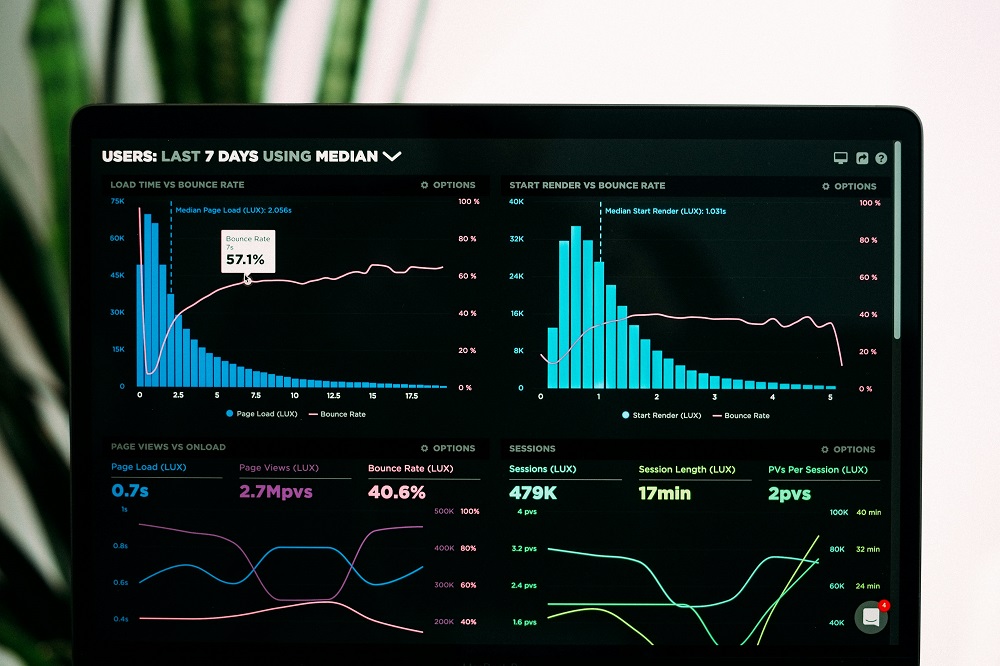Market analysis serves as one of the key elements of a business plan. It helps one understand the various factors that affect the target market, which helps in identifying opportunities and problems. With a proper analysis of market trends, customer actions, and industry competition, businesses can capture useful information that will aid in strategic decisions.
Market Analysis – Introduction
A robust, in-depth market analysis systematically outlines the customer needs and estimates the market size, growth rates, and emerging trends that will govern the industry. Alongside this, it helps businesses gauge the competitor’s ability, which will help them position their offerings effectively.
To summarize, a comprehensive and efficient analysis of the market is vital for businesses to ensure disruptive competition, reduced risks, and sustainability.
What is Market Analysis?
Market analysis is the verification of the conditions of a specific market in order to define the feasibility of a product or service. It includes defining the market’s size, its potential for growth, trends, and competition. A clear insight into the need for businesses’ products and the intricacies of the target market can be achieved through a market analysis.
This analysis uncovers important facets such as customer preferences, price sensitivity, and buying decisions, which are pivotal for sales. It also aids in recognizing market gaps, estimating opportunities, and anticipating shifts in the industry. Through effective analysis of the market, businesses can position themselves accordingly and align their strategies with the market, equipping them to make well-informed decisions and set themselves up to achieve sustainable growth.
Market Analysis Examples
Market analysis examples illustrate how businesses can conduct research for an industry, audience, and competition. In turn, these examples depict what strategies companies use to achieve success. Below are two detailed market research examples for business plans:
Example of a Local Coffee Shop
- Target Market: Urban professionals aged 25-40 who buy food and drinks from coffee shops during their lunch breaks or meet at coffee shops casually.
- Market Size: Roughly ten thousand possible customers live within a five-mile radius, providing a significant customer base to support sustained operations.
- Competitors: Five coffee shops in the area that have a range of preferences from cheaper to more expensive options.
- Trends: An increasing number of consumers prefer coffee that is organic and ethically procured. This would help the shop stand out from competitors by prioritizing sustainability and quality.
These trends help the coffee shop in the design and focus of marketing campaigns, product development strategies, and local market positioning.
Read more: What are Market Research Tools & Types of Market Research Tools
Example of a Tech Startup
- Target Market: Small companies requiring reliable and affordable cloud storage solutions, especially ones that do not have a substantial amount of IT personnel.
- Market Size: A potential 500,000 small companies across the US creates a wide base for potential customer base.
- Competitors: Dropbox and Google Drive are the leading institutions, but other startups can offer competitive features such as stronger security or higher customization options to differentiate themselves.
- Trends: The digital transformation of businesses due to remote working, alongside keeping data safe, has increased the need for secure cloud storage facilities.
The startup can enhance its focus on the USPs, align the features of the product to the demands, and create appropriate prices to increase market penetration with this data.

Examples of Market Analysis in Business Plan
Market analysis in business plan examples shows how different layers of industries and businesses utilize data insights to formulate their strategies and capture opportunities. Here are two thorough examples of market analysis for a business plan that show how it can impact a business’s strategy toward the market:
Retail Clothing Store
- Market Description: The store caters to millennials interested in eco-friendly and sustainable fashion. These customers appreciate brands that use ethical business practices, use environmentally friendly materials, and exhibit transparency within the supply chain.
- Competitor Analysis: These eco-friendly options are provided by e-commerce firms, which constitute the primary competitors. These competitors have existing customer bases and employ digital marketing to enhance their reach.
- Market Opportunity: The sustainable fashion industry is growing at a staggering rate of 20% annually due to increased consumer awareness and demand for ethical products. This opportunity is superb for the store because it has the chance to design and tell a more captivating brand story and resonate with the expanding market segment.
Mobile App Development Company
- Market Description: The target audience is composed of corporations needing complete mobile app development services to improve their business processes and IT capabilities. This includes small and medium-sized firms that are in search of affordable and effective solutions.
- Competitor Analysis: Local development agencies and independent app developers that provide these services are the main competition. Many of these competitors focus on low prices and speed.
- Market Opportunity: It is predicted that the app development sector will grow in market size by 13% every year. This is because of the ongoing digital transformation across various industries. The company can give itself a competitive edge by providing adaptable, sophisticated, and customized app solutions to meet the ever-evolving demands of the target customers.
Read more: What are Primary Research Methods and Techniques
How To Conduct Market Analysis for Your Business Plan?
Making a market analysis for your business is crucial for seeing the target market you need as well as what decisions you want to make strategically. That said, let’s tackle how to perform a market analysis effectively.
Define Your Market
- Industry and Niche: Make sure you have a defined market for your business along with an area that you will serve. This helps simplify strategies.
- Research: Use market intelligence tools such as surveys, interviews, and focus groups. In addition, you should look for reports and publications from reputable government institutions; these will help you build your secondary data set.
- Resources: Thorough and accurate data is available at primary market research and secondary market research.
Understand Your Target Audience
- Customer analysis: Look for demographic (age, gender, income), geographic (locate region), psychographic (lifestyle values), and even behavioral (buying habits) traits.
- Customer attitude: Use Sentiment Analysis tools to study customer perceptions and preferences. This will help you build or refine your product or service offerings.
Analyze Competitors
- Competition: Identify certain competitors as either direct (those that presents similar products or services) or indirect (those that offer alternative options).
- Study competitor RoI: Start with understanding their pricing model, market spot targeting, customer groups they serve, and USPs.
- Perform Competitive Market Assessment: Utilize resources that help you understand how your competitors are structured and what parts of the market are not being served.
Analyze the Market
- Look for New Patterns: Look out for new patterns like new technology, consumer trends, and moving economic conditions.
- Spot Gaps: Watch out for market changes that can help you serve the market better.
Work Out Market Quantums
- Total Addressable Market (TAM): Total demand for your product/service.
- Serviceable Available Market (SAM): You can target the portion of TAM.
- Serviceable Obtainable Market (SOM): A portion of SAM you aim to capture.
Identify Entry Challenges
- Assess Risks: Some of the possible risks include legal issues, higher-than-average capital expenditure, and complex technology interactions and systems.
- Plan Mitigation Strategies: Identifying and crafting winning tactics that ensure a smooth transition into serving the market based on the outlined assumptions can greatly impact success.
Identify Opportunities and Threats
- Conduct a SWOT Analysis: Understand your company’s strengths, weaknesses, opportunities, and threats. This thoughtful process will help manage business systematically and reduce risks actively.
These steps not only highlight how to conduct a business plan market analysis but also communicate how to understand the target audience within the market and the business as a whole.
Read more: How to Conduct a Market Research Survey?
What Does a Market Analysis Include?
This analysis provides a deeper understanding of a particular market and aids in thoroughly implementing a business plan. The most important factors for marketing analysis in a business plan include:
Industry Overview
- A brief account of an industry detailing its major activities and significant participants.
- Analyze the opportunity in the market, its growth potential, and challenges.
Audience and Market
- An in-depth description of the ideal customer, covering aspects like demographics, location, purchasing habits, and other sociological factors.
- Intellectual understanding of the ideal audience’s buying habits, including what, how, and when they tend to buy.
Competitive Analysis
- An overview of the competitors, their target market, how much of the market share they dominate, and why customers prefer them.
- Competitors and their products, pricing, customer service, and any other strengths or weaknesses they may have.
Market Trends
- Defining the current emerging or potential changes in the industry from both technological and consumer preference angles.
- Effectively incorporate competitive market intelligence into actionable data.
Regulatory Environment
- A summary of laws, regulations, and industry standards that apply to the market.
- Include compliance considerations as to its impact on the organizational activities.
Market Projections
- Forecasting revenues based on market potential enables businesses to ascertain their expected financial returns.
- The anticipated growth and profit margins are analyzed based on existing market data and trends.
With these components, market analysis has broadened the scope through which it aids a business to plan and get results.

Benefits of Market Analysis
Market analysis is helpful in so many aspects, like assisting companies in making rational decisions as well as meeting their goals. Here’s a more detailed outlook regarding those advantages:
- Improved Decision-Making: Market analysis aids companies in knowing their target market as well as consumer behavior and enables them to make informed systematic choices, which helps them avoid possible risks. By grasping market trends and consumer activities, businesses are able to make progress in the right direction.
- Strategic Planning: A sophisticated analysis of the particular market allows adequate marketing and operational plans and strategies to be developed. This means that businesses must put systems in place that allow maximum achievement with resources and time.
- Understanding Customer Needs: The market analysis presents important information about customers’ purchasing patterns and needs by studying their demographic, geographic, psychographic, and behavioral makeup. Thus, businesses can design appropriate goods and services that meet the expectations of the customers.
- Competitive Advantage: Precise competitor analysis encourages businesses to discover market opportunities that are not being taken advantage of by the competitors. In addition, by knowing competitors’ palms and thorns, companies can build propositions that can be unique in demand.
- Risk Mitigation: Analysis of markets highlights challenges and threats that exist as risks in an industry, hence making it possible for a company to set up strategic plans that will prevent losses or minimize damage. This leads to a reduction of uncertainties and better risk management.
- Investor Attraction: When an investor looks over a business, a market opportunity analysis shows that there is a good chance the business understands the industry along with its customers. This claim increases investor trust alongside their willingness to fund the business as it shows growth and profit potential.
Read more: Market Research Industry Trends and Predictions for 2025
Summary – Market Analysis
Marketing analysis for a business plan is very important because it provides facts that inform the strategic choices of a business. It allows businesses to understand the customer base, the competition, and the economy so they can find opportunities and understand the challenges. Effective market analysis arms businesses with the information and foresight required to determine the best growth strategies, optimize marketing efforts, and manage the budget appropriately. More importantly, it fosters positive perception among investors as it gives them assurance that the business has a solid foundation.
Conclusion – Market Analysis for Business Plan
Market research for a business plan is critical when creating a business plan, and an analysis serves not only as background information but also as a useful investment into the growth of the business. With the use of innovative technologies like market research solutions, businesses can obtain relevant business information that helps a firm understand how to respond to competition and changing business trends. A well-informed market study allows companies to embrace new competitiveness and plan business innovations more judiciously. In the end, investing effort into analysis and information ensures that the action plan is obtained, and the goals set are achieved, as well as ensuring sustainability at the firm.
A leader in Market research, SG Analytics enables organizations to achieve actionable insights into products, technology, customers, competition, and the marketplace to make insight-driven decisions. Contact us today if you are an enterprise looking to make critical data-driven decisions to prompt accelerated growth and breakthrough performance.
About SG Analytics
SG Analytics (SGA) is an industry-leading global data solutions firm providing data-centric research and contextual analytics services to its clients, including Fortune 500 companies, across BFSI, Technology, Media & Entertainment, and Healthcare sectors. Established in 2007, SG Analytics is a Great Place to Work® (GPTW) certified company with a team of over 1200 employees and a presence across the U.S.A., the UK, Switzerland, Poland, and India.
Apart from being recognized by reputed firms such as Gartner, Everest Group, and ISG, SGA has been featured in the elite Deloitte Technology Fast 50 India 2023 and APAC 2024 High Growth Companies by the Financial Times & Statista.

